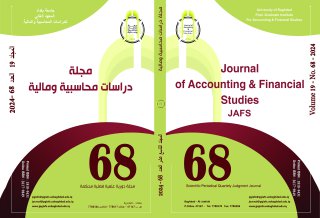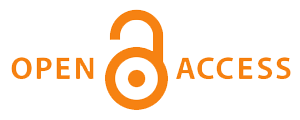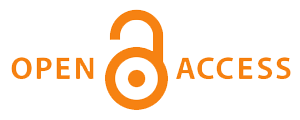تدقيق نظام المعلومات المحاسبي الالكتروني على وفق اصدارات التدقيق المهنية لتحقيق متطلبات إطار COBIT 2019-برنامج مقترح
DOI:
https://doi.org/10.34093/9t5vda25الكلمات المفتاحية:
تدقيق نظام المعلومات المحاسبي الالكتروني، برنامج تدقيق، الاصدارات، مهنة التدقيق الانتوسايالملخص
تتعرض النظم المحاسبية الالكترونية الى مجموعة من المخاطر منها مخاطر طبيعية كالحرائق والفيضانات فضلا عن مخاطر متعمدة كسرقة البيانات او الفيروسات اواي برامج الكترونية اخرى تحاول بشكل او باخر تعطيل الانظمة ،إذ يتطلب الامر لمواجهة تلك المخاطر ضرورة وجود برامج لتدقيق تلك الانظمة ، وتكمن مشكلة البحث بعدم قيام الجهات التدقيقية العليا بإعداد برامج تدقيق لتلك الانظمة على وفق اصدارات التدقيق المهنية كالأدلة الاسترشدية حول تدقيق تكنولوجيا المعلومات المرقم 5100 والمعايير الدولية ودليل تدقيق تكنولوجيا المعلومات(WIGITA) الصادرة من منظمة الانتوساي والاخذ بالحسبان مايتم اصداره من الجمعيات المهنية من اطر للرقابة والتدقيق ذات الصلة بتكنولوجيا المعلومات كإطار COBIT 2019 والذي يساعد في تحقيق اهداف الحوكمة وادارة المؤسسة ،إذ اكتسب البحث الاهمية من خلال تدقيق نظام المعلومات المحاسبي الالكتروني وفقا لاصدارت المنظمات المهنية من معايير وارشادات وادلة لتدقيق النظم الالكترونية لمعالجة المخاطر التي تتعرض لها عملية التحول من نظام المعلومات المحاسبي اليدوي الى الالكتروني ،وتم استخدام اسلوب المقابلات الشخصية والاستفسارات الشفوية للتعرف غلى المخاطر الني تتعرض لها نظم المعلومات المحاسبية الالكترونية ، ويسعى البحث للتعرف على المرتكزات النظرية لتدقيق نظام المعلومات المحاسبي الالكتروني والاصدارات المهنية ذات الصلة وإطارCOBIT 2019فضلا عن اعداد برنامج مقترح لتدقيق نظام المعلومات المحاسبي الالكتروني وفقا للاصدارات المهنية لتحقيق متطلبات إطار COBIT 2019، وخلص البحث الى مجموعة من الاستنتاجات اهمها عدم وجود برنامج تدقيق معتمد من قبل الهيئات الرقابية والتدقيقية العليا ومراقب الحسابات يأخذ بنظر الاعتبار الاصدارات المهنية لتحقيق متطلبات إطار COBIT 2019،و ان تطبيق البرنامج المقترح يساعد المدقق في تحديد المخاطر وكيفية الاستجابة لها من حيث طبيعة وتوقيت ومدى اجراءات التدقيق كما قدم البحث مجموعة من التوصيات ابرزها ضرورة تبني برنامج التدقيق المقترح لتدقيق نظام المعلومات المحاسبي الالكتروني وتطبيقه في الوحدات الاقتصادية فضلا عن ضرورة تدريب الجهات الرقابية واطلاعهم على تجارب الدول فيما يخص تدقيق نظام المعلومات المحاسبي الالكتروني.
التنزيلات
منشور
إصدار
القسم
الرخصة
يتمّ نقلُ حقوق النّشر إلى المجلّة عند إخطار الباحث بقَبول بحثه المقدّم للنّشر في المجلّة.





